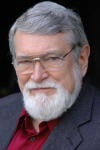By 1991, Fran and I had pretty much decided that Asia was home and assumed we might remain there indefinitely—until a fateful conversation with Smitu Kothari. Smitu was a leading Indian intellectual and activist who had beomce a close friend and colleague. While visiting him in India one day in 1991, he said,
“You and Fran came here from the United States to help us. We appreciate that. You have since learned what our real problem is. If you really want to help us now, you need to return home and share what you have learned here with other Americans.”
Smitu was referring to the negative social, environmental and political impact of corporate driven U.S. economic policies he knew I was beginning to understand. After serious reflection, Fran and I realized that Smitu was right.
In 1992, we returned to the United States and settled in New York City. Fran settled into a new Ford Foundation assignment and brought the lessons of social forestry in Asia to the Ford Foundation’s forestry programming in the United States. I turned my attention to writing what would become When Corporations Rule the World.
From our new base in New York in an apartment appropriately located near Union Square between Madison Avenue and Wall Street, I looked back with fresh eyes on the lessons of our experience abroad and began putting the lessons of that experience in an ever enlarging context. The result was a burst of creative insights for which all my previous years were but preparation.
One of my first major initiatives following our return to the United States was to join my Filipino colleagues at the 1992 UN Earth Summit in Rio, where I participated in the deliberations of the International NGO Forum they had a major role in organizing and joined with them in drafting The People’s Earth Declaration: A Proactive Agenda for the Future, the NGO consensus declaration for the conference.
Another initial product was an essay co-authored with two Asian colleagues, Nicanor Perlas (Philippines) and Vandana Shiva (India), “Global Civil Society: The Path Ahead,” that framed an epic struggle between the forces of imperial rule represented by corporate globalization and the democratic forces of community represented by global civil society. We released it on November 20, 2002
In October 1992, I participated in a small ten-day retreat in Baguio, Philippines I had helped to organize with six Asian nongovernmental organization (NGO) leaders, all of whom were then members of the board of contributing editors of the People-Centered Development Forum. It was an unscripted 10 day reflection on Asia’s development experience and its implications for future NGO strategies in the region. We were all aware by that point that on balance, Western models and theories of development were producing devastating consequences for people and nature. We met in Baguio to reflect on the causes and to frame alternatives.
We concluded that conventional development theory is based on a false premise regarding the nature of progress and prosperity. We then realized that the need is not for an alternative theory of development, but rather a theory of a just and sustainable society that embraces the spiritual dimension of life and community. We concluded that the theory we sought would serve all peoples and countries—not just those that economists consider to be “underdeveloped.” We reported our shared conclusions in “Economy, Ecology & Spirituality: Toward a Theory and Practice of Sustainability,” (Published July 1993)
In a subsequent web essay, “Renewing the American Experiment,” January 11, 2004, I applied the frame developed in the previous two essays specifically to the U.S. experience and enumerated the implications. As I look back, I am struck by the extent to which most everything I have written since has been an elaboration on themes originally developed in these three papers written with these extraordinary Asian colleagues and reflect Asian religious and spiritual traditions.
The web publication of Renewing the American Experiment coincided with my joining a series of meetings of activists from around the world organized by Jerry Mander and the Deep Ecology Foundation that led to formation of the International Forum on Globalization (IFG). Our early discussions centered on sharing experiences with corporate led efforts to integrate national economies into a seamless, corporate dominated global economy—and the resulting consequences. Step by step national governments were being stripped of their ability to manage their economies for the benefit of their own people.
Our discussions made clear that the patterns were global and universal across all countries and worked consistently to the advantage of corporations and the disadvantage of people, the rest of nature, and democracy. They were an invaluable contribution to my thinking as I finalized the manuscript for When Corporations Rule the World, which launched in 1995.
Each of us went home from our IFG meetings to communicate our version of our shared analysis to our respective constituencies through the media available to us. This, in turn, inspired a powerful international resistance against corporate globalization that burst into global consciousness with the Seattle WTO protest in 1999. For the next two years, wherever in the world the corporate elites met to move forward their agenda, they encountered massive demonstrations, some involving more than a million people. This experience left me acutely aware of the of the enormous impact a small number of dedicated and articulate activists with a compelling message can have if they work together to communicate it at a moment of public readiness.
Despite the instant and global public response, we quickly realized that resistance alone against a bad system is a losing strategy. The system must be replaced. But with what—and how?
<Next: Learning from Living Systems>

